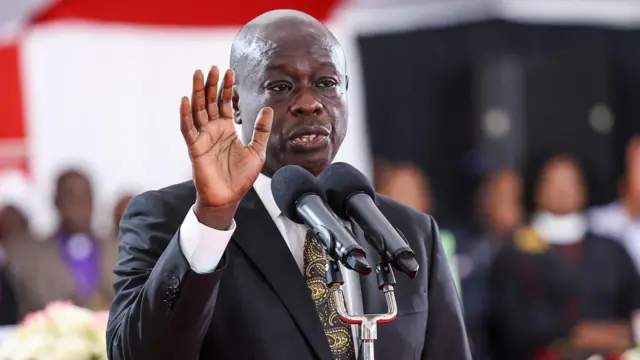Kenya’s judiciary on Tuesday declined to intervene in the impeachment process against Deputy President Rigathi Gachagua, allowing a crucial Senate vote scheduled for Wednesday and Thursday to proceed. This development follows last week’s parliamentary vote to impeach Gachagua on charges of stirring ethnic hatred, embezzlement, and undermining the government.
In two separate court proceedings, attempts to halt the impeachment process were unsuccessful. Justice Chacha Mwita referred one case to the Chief Justice, recommending the appointment of a panel of judges for a final determination. In another courtroom, a panel of judges declined to immediately enforce a gag order on parliament. The panel stated it would deliver a full ruling on the constitutionality of Gachagua’s impeachment on Wednesday morning, coinciding with the start of the Senate debate.

Gachagua has vehemently denied the allegations, describing the impeachment motion as based on falsehoods and constituting a “political lynching,” according to court documents reviewed by Reuters.
The impeachment proceedings have highlighted growing political tensions within Kenya’s leadership. Gachagua, who played a crucial role in securing votes from the populous central Kenya region for President William Ruto’s 2022 election victory, has recently spoken of being sidelined. Local news reports have suggested an emerging rift between Gachagua and Ruto as political alliances shift.
The political landscape in Kenya has been turbulent in recent months. President Ruto reshuffled his cabinet, incorporating opposition members following nationwide protests against tax increases that resulted in over 50 fatalities. Notably, Ruto has not publicly commented on the impeachment proceedings against his deputy.
As the Senate prepares to debate Gachagua’s removal from office, the political climate in Kenya remains tense. The outcome of this vote could have significant implications for the country’s political stability and the future of the current administration.
The impeachment process and its surrounding legal challenges underscore the complex interplay between Kenya’s executive, legislative, and judicial branches, as well as the delicate balance of power within the ruling coalition.



